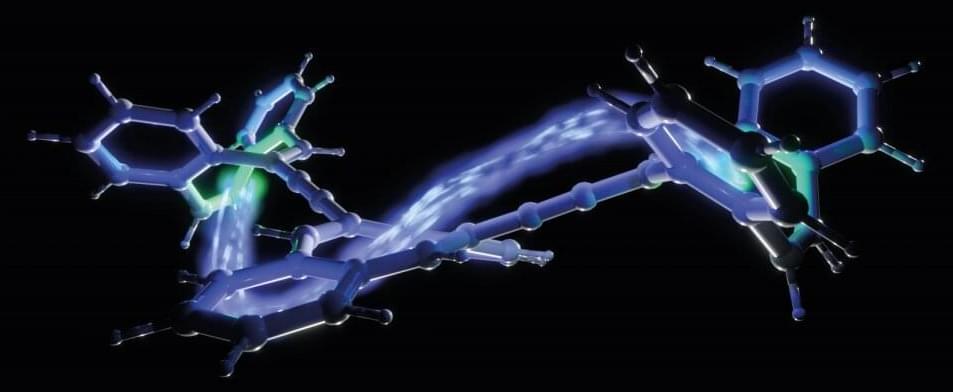Researchers at Lund University in Sweden have succeeded in developing a simple hydrocarbon molecule with a logic gate function, similar to that in transistors, in a single molecule. The discovery could make electric components on a molecular scale possible in the future. The results are published in Nature Communications.
Manufacturing very small components is an important challenge in both research and development. One example is transistors—the smaller they are, the faster and more energy efficient our computers become. But is there a limit to how small logic gates can become? And is it possible to create electric machines on a molecular scale? Yes, perhaps, is the answer from a chemistry research team at Lund University.
“We have developed a simple hydrocarbon molecule that changes its form, and at the same time goes from insulating to conductive, when exposed to electric potential. The successful formula was to design a so-called anti-aromatic ring in a molecule so that it becomes more robust and can both receive and relay electrons,” says Daniel Strand, chemistry researcher at Lund University.










Comments are closed.